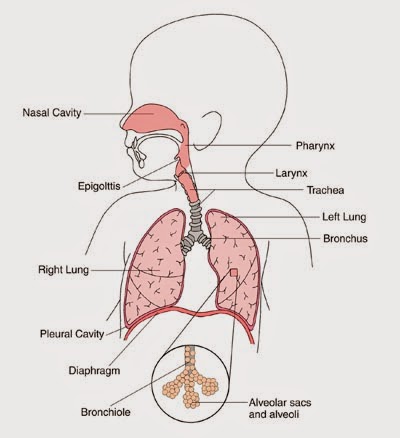Bronchitis in infants is defined as a disorder in the respiratory tract in which the bronchi (air passages in the lungs) get an inflammation. The inflammation is caused by either a bacterial or viral infection that upsets the regular flow of air in and out of the lungs. Children or infants who are 6 months up to 2 years of age are highly susceptible to bronchitis especially during the winter season. It has been observed that if a case of common cold in infants is not properly treated, it could easily turn into bronchitis.

Kinds of Infant Bronchitis
Bronchitis in infants is either chronic or acute. The beginning of the infection is abrupt in acute bronchitis. Even though this bronchitis is a severe kind, the infection is only temporary. Chronic bronchitis on the other hand, is a kind of infection that slowly invades the air passages and its presence is noticed after a certain period of time. This bronchitis can last for a long time and the child may take many months before he or she recovers from the infection.
The Symptoms of Infant Bronchitis
What are the health-related issues connected with bronchitis that indicates if a child is suffering from this kind of respiratory problem? Runny nose and nasal congestion are the initial and usual symptoms of bronchitis in infants. The following are the other symptoms related to infant bronchitis:
Breathing Difficulty: Inflammation or swelling of the airways obstruct the child’s capacity to properly breathe. Breathing difficulty is one of the usual indications of infant bronchitis. This kind of infection leads to shortness of breath and is commonly associated with wheezing when breathing.
Persistent Cough: Children with bronchitis experience recurring bouts of cough. The persistent cough directly affects the infant’s voice. Moreover, this condition renders the infant gasping for breath and usually leads to the infant having a hoarse voice. Persistent cough is the infant’s response to the mucus that has accumulated in his/her chest or lungs. The body simply tries to expel the built up mucus by means of coughing.
Chest Pain: Chest tightness while the bronchial infection is still present can really give the infant plenty of discomfort. Persistent cough is directly responsible for this pain in the chest.
High Body Temperature: High body temperature can also lead to fever. Aside from high body temperature, the child can simultaneously suffer from weakness, fatigue in addition to headache as a result of bronchitis.
Treatment for Infant Bronchitis
The only person who can prescribe treatment for bronchitis in infants is the doctor. Usually, the infant’s chest X-ray is needed in order to get a proper diagnosis of the disease. The doctor can suggest antibiotics in case of bacterial infection to alleviate the symptoms that lead to infant bronchitis. But the viral infection that leads to infant bronchitis cannot be treated by antibiotics, and therefore; the best option is to take preventive measures to relieve the symptoms.
Preventive Measures

One of the preventive measures against bronchitis in infants is a well ventilated room. Placing a humidifier can greatly help to maintain the air’s moisture and humidity. Because of this, the humid air can provide instant relief to the lungs of those who have bronchitis. Moreover, giving the infant lots of fluids can help him/her release the build-up of mucus. In addition, using saline drops right after a doctor’s visit is extremely helpful to alleviate chest congestion. In order to strengthen the infant’s immune system, feeding the infant breast milk is recommended to fight the bronchial infection.
You have to remember that the infant bronchitis is a respiratory disease that should not be taken for granted. Medical treatment is absolutely necessary to keep bronchitis in infants under control and avoid complications like respiratory failure or pneumonia.
No comments:
Post a Comment